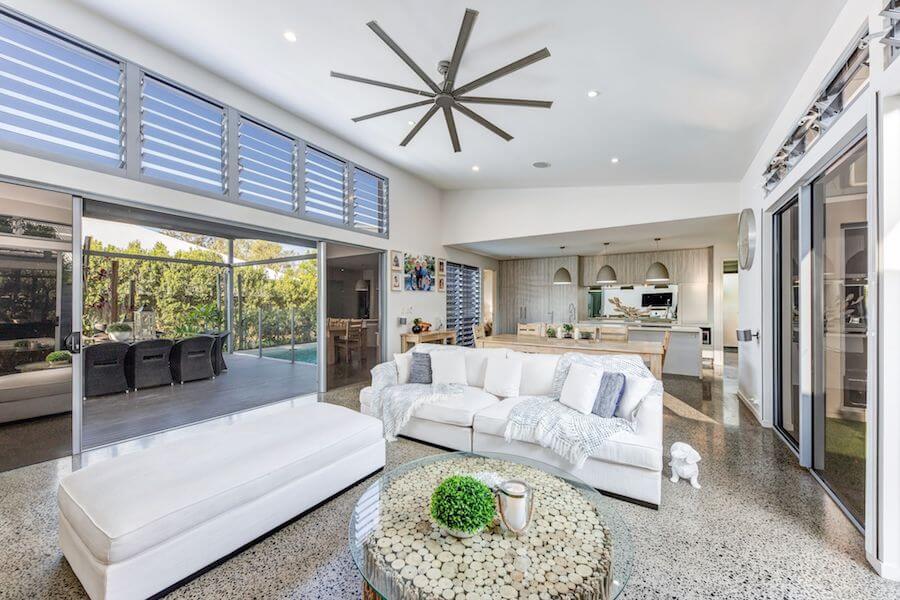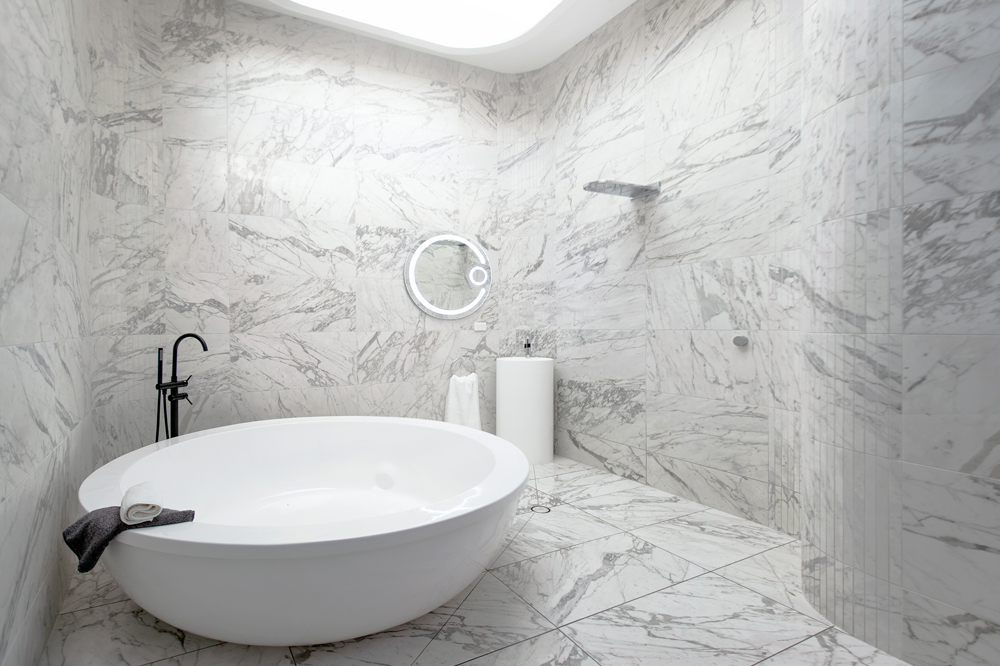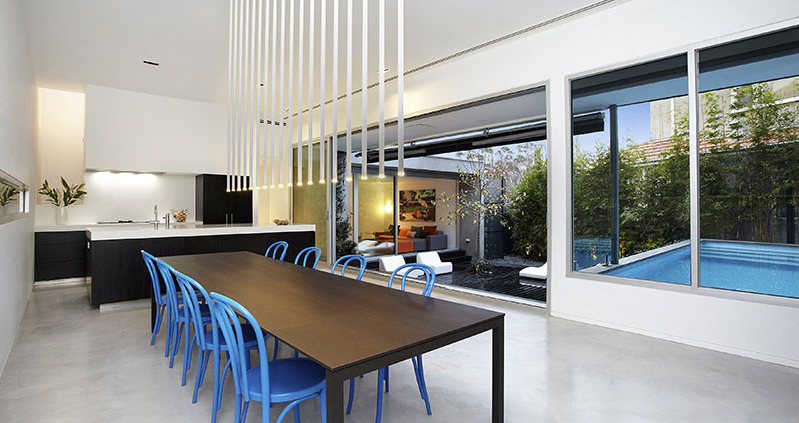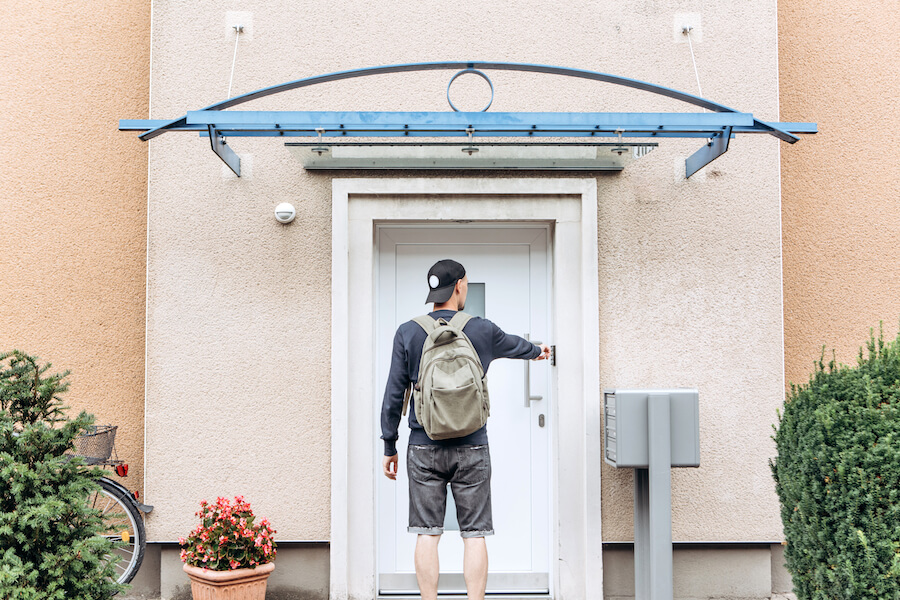Deciding what material to use for your floor is no small matter. A wise decision means you’ll be smiling at your floors for many years to come. Make a mistake, and you’ll be faced with a miserable situation of having to move, renovate (again), or suck it up for the years ahead.
For most, one of the most popular debates when choosing a flooring material is between polished concrete or wooden floorboards. Very distinguished options, they both have a certain aesthetic and feeling under your toes.
Here are four things to consider when deciding between polished concrete or wooden floorboards for your upcoming flooring project.

Topics in this article:
Polished concrete versus floorboards: Which is right for you?
Maintenance
Polished concrete floors hold the advantage here in terms of maintenance compared to wooden floorboards.
Hardwood floorboards require regular polishing every three to four years and termite prevention maintenance. Professional polishing can be costly, and so are pest control services.
Concrete, on the other hand, is known for being easy to care for and lower maintenance. Cleaning is as simple as a sweep and mop with some mild cleaner to keep your floors looking great.

Spills, stains, and water damage
Concrete is extremely easy to wipe down and has the advantage of being spill and stain-resistant. Moreover, polished concrete is resistant to bacteria growth, so you won’t have to worry about having mouldy spots in the bathroom.
In contrast, wooden floorboards are susceptible to water damage if water seeps into it. If you have wooden floorboards, you should avoid stagnant pools of water collecting and ensure that water isn’t dripping from the mop. Mopping with a wet cloth is alright so long as it isn’t drenched. For this reason, you should avoid using wooden floorboards in the kitchen or bathroom.
Durability and longevity
It takes a lot to damage concrete, and if properly installed, polished concrete will last you 10 to 20 years with minimal maintenance. With its high durability and lifespan, having polished concrete in place means that you save a fair share of money in the long term.
Wooden floorboards, unfortunately, are susceptible to scratching from heavy traffic. Damage can also be caused by high-heels and pets. As such, wooden floorboards have to be taken care of in order to remain durable and stay looking good.

Versatile looks
There is something precious about the timber look and warmth wooden floorboards can offer, for which concrete cannot provide. It’s a rustic, natural, and vintage vibe that can complete a home’s ambience nicely. With many different types of hardwood to choose from along with wooden grains that are unique to each floorboard, the possibilities of colour and design are almost endless.
Similarly, polished concrete floors are extremely versatile with a wide array of looks. From full aggregate exposure to none, a completely matte look or a highly reflective finish, the designs and aesthetics of polished concrete are plentiful. Depending on your personal preference, you will find a design choice that suits.

Another thing to be aware of is in how different choices of polished concrete will offer different functional advantages. For example, high gloss concrete effectively reflects light which works great in areas where additional brightness is needed. Matte polished concrete with no aggregate works wonders for architects recreating an industrial, chic vibe.
Beyond design, you can choose from the vast number of colours and coatings which add life and distinctiveness to your surface. To increase durability, add an epoxy coating. Alternatively, you can add a dye or a stain. So many choices!
When it comes down to functionality, durability and value for money, polished concrete can’t be beaten. But the feel, look and warmth timber floorboards bring to a home is pretty special too. Hopefully, our pros and cons of these two popular flooring types help you decide which type of flooring will suit your lifestyle best.






With the renovation of our garage around the corner, my wife and I are looking into concrete polishing for the garage floors. I sat down to look this up and lucky for me, I stumbled on your informative article. My favorite part has to be where you mentioned it takes a lot to damage concrete, and if properly installed, polished concrete can last 10 to 20 years with minimal maintenance. I’m sure those interested in this polished concrete will be happy to be made aware of the point you raised here. I’ll be sure to share this with my wife later today, she would love it! Thanks a lot! http://www.jmgconcreting.com.au/services.html